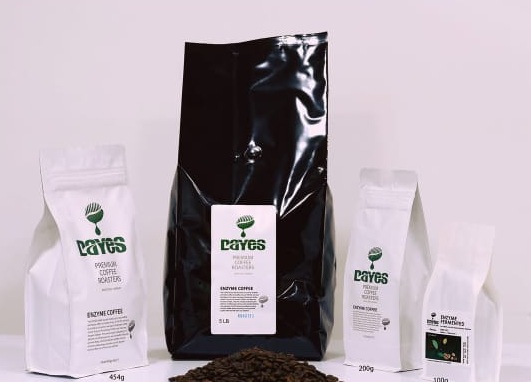Enzyme coffee is a combination of conventional coffee and digestive enzymes. It typically includes coffee mixed with ingredients like green tea, lemon, apple cider vinegar, and honey, which are believed to contain or stimulate digestive enzymes that may support gut health and metabolism.
Enzyme coffee is making waves inside the well-being industry through viral Instagram reels and TikTok videos, frequently hailed as the next big thing in healthy weight control. Promoters say it’s greater than just coffee—it’s a smart brew that reinforces energy, aids digestion, and enables burning fat extra successfully.
But does enzyme coffee work, or is it just another fleeting trend in the ever-growing world of weight loss supplements? Before you ditch your regular brew and jump on this viral bandwagon, let’s dive into what science and real users have to say. The truth might surprise you—and could change your morning ritual forever.

How is Enzyme Coffee made?
Enzyme coffee doesn’t have a standard recipe – it really varies depending on who’s making it. Generally, you brew regular coffee and add ingredients like lemon juice, apple cider vinegar, and honey that contain natural digestive enzymes.
You can also find pre-packaged enzyme coffee where manufacturers add stimulants like guarana, yerba mate, green tea extract, or ginseng to boost energy and metabolism claims.
Honestly, the quality and effects can be hit or miss. Always good to check what’s actually in it before trying.
Does Enzyme Coffee Help with Weight Loss?
There’s no scientific research proving that enzyme coffee helps with weight loss. Some products claim to contain “fat-burning” enzymes, but that’s not how digestive enzymes actually work.
Digestive enzymes help break down food into nutrients like fats, proteins, and carbohydrates [1]. While your body naturally produces these enzymes during digestion, the idea behind enzyme coffee is to add more to enhance this process.
But here’s the problem – consuming extra enzymes doesn’t translate to burning more fat. They work in your digestive system, not directly on fat tissues throughout your body.
Another major issue is that enzymes are proteins that get destroyed by high temperatures [2]. So when you add them to hot coffee, they likely become inactive before they can have any effect.
Now, the caffeine in coffee is a different story. Caffeine can slightly boost your metabolism, help with thermogenesis (your body’s heat production), and maybe even support modest fat loss.
A 2019 study in the Journal of Nutrition and Metabolism found a link between caffeine intake and lower body fat [3]. So, if enzyme coffee helps at all, it’s likely because of the caffeine, not the enzymes.

What are the Potential Side Effects of Enzyme Coffee?
Enzyme coffee can have side effects, especially because many versions include high-caffeine ingredients like guarana or yerba mate. If you’re sensitive to caffeine, you might feel:
- Shaky or unable to sit still
- Increased anxiety or feeling on edge
- Trouble falling asleep or Insomnia
- Stomach issues, including loose stools
- Painful headaches
Also, insufficient knowledge of ingredients could lead to negative interactions, like allergic reactions.
Your reaction to enzyme coffee largely depends on how your body handles caffeine. Some people can have a lot of caffeine with no issues, while others might feel terrible after just a small amount.
If you’re making a basic version of enzyme coffee at home with just coffee and lemon juice, you probably won’t experience serious health problems beyond the unpleasant taste. However, don’t expect this mixture to magically melt away pounds.
Benefits of Enzyme Coffee Beyond Weight Loss
While enzyme coffee does not function as a weight loss miracle, it can have some additional wellness advantages.
The addition of green tea extract and yerba mate extract in enzyme coffee consumption leads to possible increased attention span and energy levels. Natural stimulants found in enzyme coffee help boost activity levels, thus inducing people toward physical movement and exercise.
Users of enzyme coffee claim that it upgrades their gut health, reduces their bloating symptoms, and improves their digestive functions. The presence of digestive enzymes within the coffee helps certain users achieve better digestive performance.
- May reduce bloating
- Can improve digestive comfort
- Natural energy from plant-based extracts
In short, while weight loss isn’t guaranteed, feeling better in your body could be a motivating factor.
What is Enzyme Fermented Coffee?
Enzyme-fermented coffee uses specialized enzymes to transform green coffee beans through a unique fermentation process. The special enzymes used in this process break down specific compounds in coffee beans in just a few hours, much faster than traditional fermentation methods that use bacteria. It lowers caffeine, reduces acidity and bitterness, and keeps the original flavor while adding a smoother, more refined taste.
Now, fermentation itself isn’t new to coffee. It’s been part of the processing stage for centuries, used to remove the fruit around the bean and subtly shape its flavor. But instead of relying on natural bacteria or yeast, this method uses bioengineered enzymes for more control and better results. It’s kind of like how winemakers fine-tune their fermentation process, and enzyme-fermented coffee has a similar depth and complexity.
And no, this isn’t the same as the “enzyme coffee” you see online with sketchy health claims. This is real coffee, just processed in a smarter, more stomach-friendly way.
This approach is somewhat reminiscent of Kopi Luwak coffee, where beans are partially digested by civets. But instead of relying on animals, it uses modern biotech to boost the health benefits of coffee instead of just making it a fancy drink.
Read More about:
Dayes Enzyme Fermented Coffee
DAYES Enzyme Coffee is a notable brand in this space. Their process reduces caffeine content by 36% to 40% while also lowering acidity, making it gentler on sensitive stomachs.
DAYES uses specialty-grade beans and emphasizes freshness, roasting coffee just before shipping. If you’re looking for a smoother, more thoughtful cup, enzyme-fermented coffee is worth a try.

Discover related exciting articles:
FAQs
Does enzyme coffee suppress appetite?
Yes, enzyme coffee may help suppress appetite due to its blend of enzymes and natural ingredients that support digestion and metabolism. However, effects can vary by product composition
Does Enzyme Coffee have More Caffeine?
Yes, enzyme coffee may have more caffeine because it often includes ingredients like yerba mate and guarana. These natural additives are known for their high caffeine content, similar to coffee and tea.
References:



